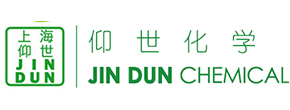EU ban on new nicotine insecticides hinders sugar beet cultivation
2023/9/26
Farmers and industry experts told Reuters that the European Union and environmental organizations have stated that the ruling is crucial for protecting pollinating insects, some of which are currently facing extinction. The ruling has led to a reduction in sugar beet cultivation and an impact on crop yields. Alexandre Pele, who owns 240 hectares of farms in central France, said, "In our region (this year) we lost 15% of our (sugar beet) area. I have been working hard to fulfill my production commitments with sugar mills because the ban on new nicotine insecticides has significantly reduced my production
The European Union is the third largest sugar producing country in the world, so reducing production may affect soaring global sugar prices and hinder efforts to reduce food inflation. An analyst from one of the world's largest sugar traders said, "We have entered a new model in the sugar industry, where low prices have become a thing of the past. Global inventory is low, demand is growing, and due to climate change, it is difficult to expand production around the world, especially in Europe, where supply is fragile." EU sugar prices are at historical highs, about twice as high as two years ago, partly due to the shrinkage of the local sugar industry, An increase in dependence on expensive imports.
The European Commission predicts that sugar imports will increase by about 60% this quarter. The EU relies on imported sugar to meet approximately 15% of its demand, most of which is subject to tariffs. In 2018, Europe banned the use of neonicotinoid insecticides on non flowering crops such as sugar beets. However, after the yellow virus attacks in France and the UK in 2020 led to a decrease in production, EU member states granted temporary exemptions. Since the court ruled in January this year to ban exemptions, the area used by France, the largest sugar producing country in the European Union, to grow sugar beets has fallen to a 14-year low. The European Commission stated that due to this ruling, it is expected that the sugar beet area of the entire EU will decrease by about 3% this year compared to the five-year average. EU data shows that since the 2018 new nicotine ruling, the beef planting area in the EU has decreased by 17%.
The decrease in planting area has led to Tereos, the world's second largest sugar producer, closing a factory in northern France this year and losing 123 jobs. Tereos stated at the time that it was expected that the beef received from farmers would decrease by 10%. French grower Bailey stated that due to his investment, he has not yet reduced sugar beet production, but one of his plots has seen a 45% decrease in production this year. One tenth of the bee and butterfly species are crucial for protecting biodiversity and are currently facing the threat of extinction, with environmental organizations and the European Union blaming most of the blame on neonicotinoids.
Noa Simon Delso, the scientific director of Beilife, a non-profit organization based in Brussels, said, "The harm of nicotine to pollinators is undeniable. They are the most studied insecticides in human history, and we are very clear about how they work. Several seed manufacturers, including KWS Saat (KWSG. DE) in Germany, are studying new varieties of sugar beets, These varieties can naturally resist the virus yellow, but farmers say they may not be available until 2027. At this point, those who leave the industry and sell expensive equipment may not want to come back.
Andrew Blenkiron operates a 7000 acre farm in eastern England, and due to Brexit in the UK, new nicotine based drugs can be used this year. He said, "Consumers will have to realize that if more restrictions are imposed on agriculture, regardless of whether the reasons are sufficient, production costs will increase until we find other ways to grow this food. If we cannot protect our crops, I will no longer grow sugar beets. This is a dilemma between producing food at cost-effective prices and ensuring that we have good environmental protection.
The shrinkage of the sugar beet industry may affect other major crops, as farmers need to plant alternatives such as sugar beets or oilseeds in wheat, barley, and corn fields every other year to maintain soil health. Oil seeds were one of the first target crops banned at the end of 2013, and since then, rapeseed production has decreased by 12%. Bailey said, "If I lose a crop like sugar beet, it's an agronomic (crop rotation) issue, and due to the recent weather threats being diverse, having multiple crops can help me better manage risks. If I stop eating sugar beets, it will be a real loss.
JIN DUN CHEMICAL has built a special (meth) acrylic monomer manufacturing base in ZHEJIANG province. This makes sure the stable supply of HEMA, HPMA, HEA, HPA, GMA with high level quality. Our special acrylate monomers are widely used for thermosetting acrylic resins, crosslinkable emulsion polymers, acrylate anaerobic adhesive, two-component acrylate adhesive, solvent acrylate adhesive, emulsion acrylate adhesive, paper finishing agent and painting acrylic resins in adhesive.We have also developed the new and special (meth) acrylic monomers and derivatives. Such as the fluorinated acrylate monomers, It can be widely used in coating leveling agent, paints, inks, photosensitive resins, optical materials, fiber treatment, modifier for plastic or rubber field. We are aiming to be the top supplier in the field of special acrylate monomers, to share our rich experience with better quality products and professional service.

